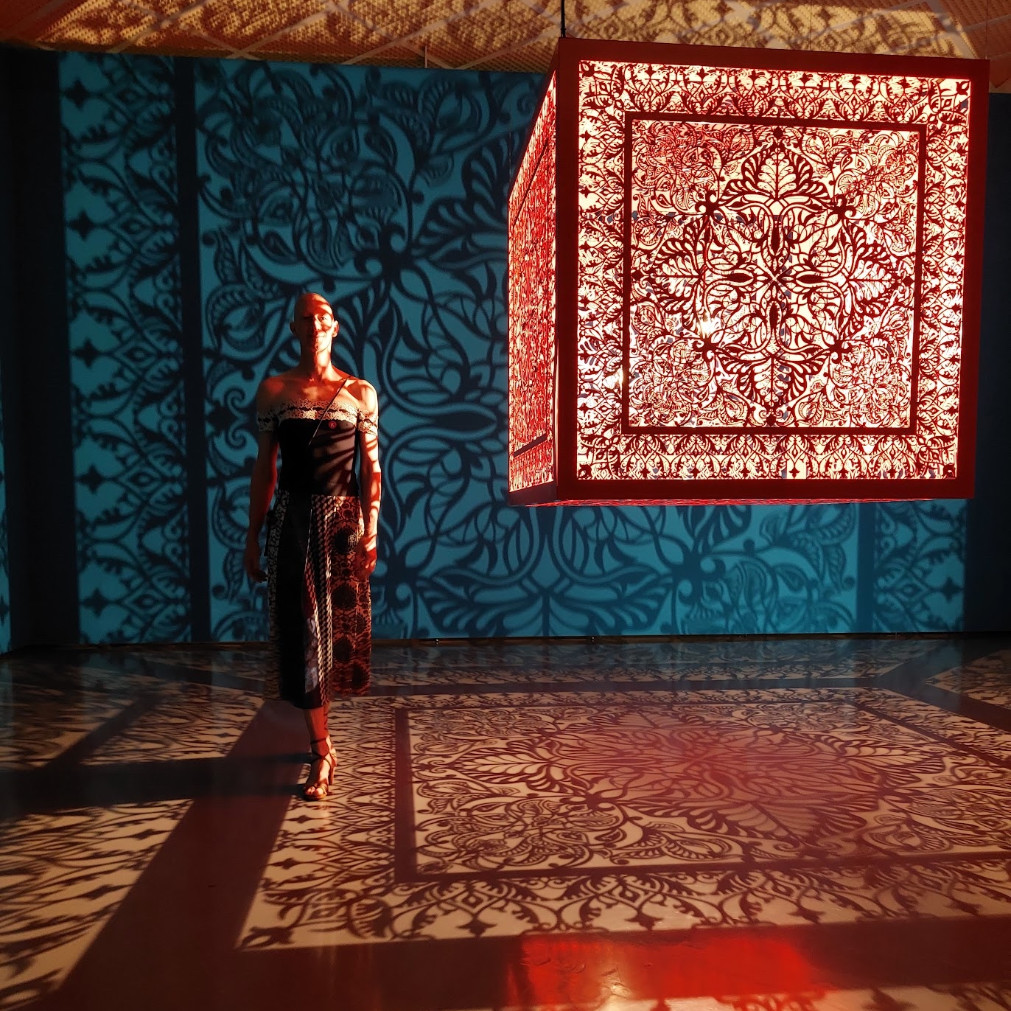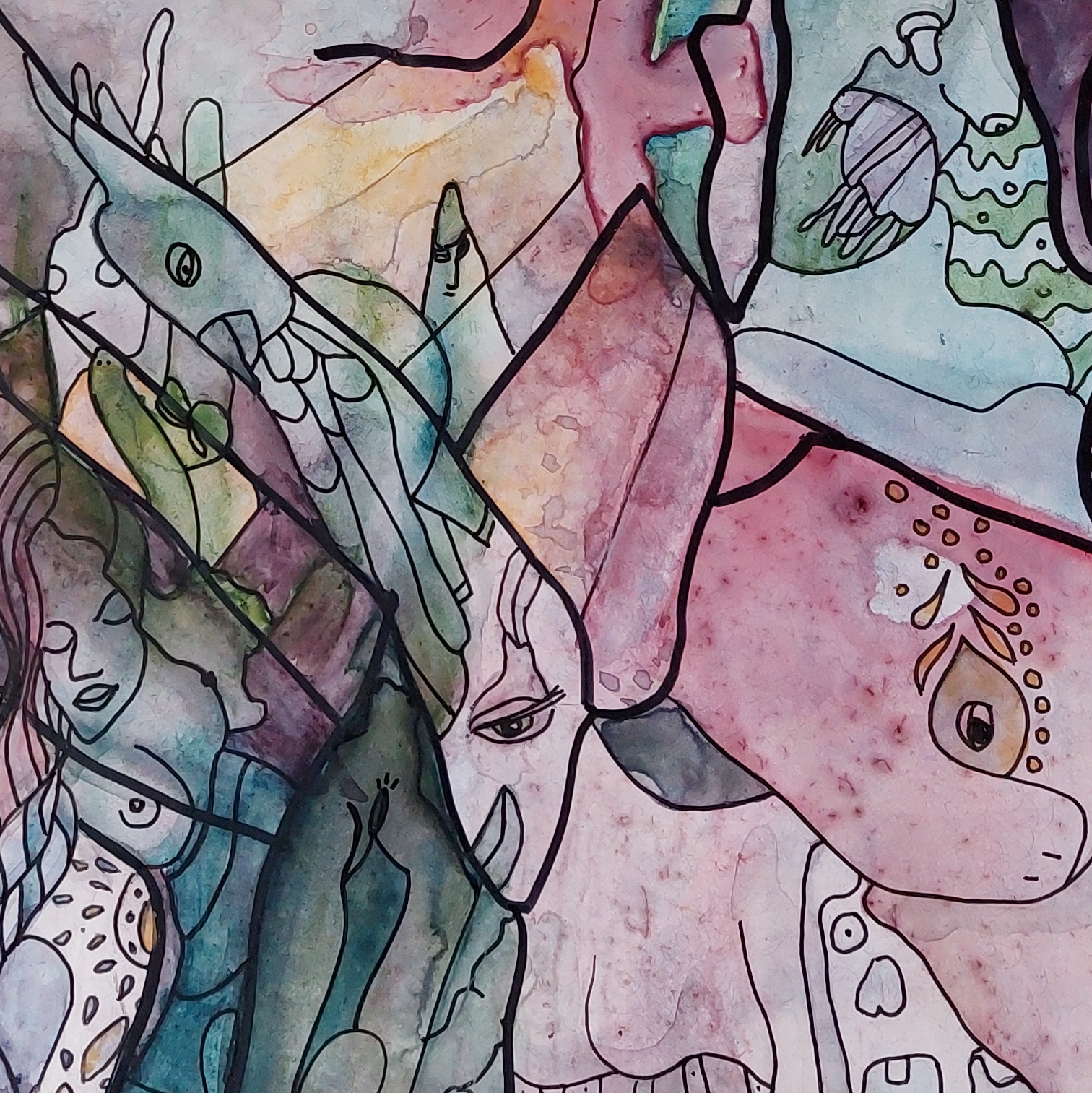These are the reflections from the meetups in Zürich and Lausanne around A’ishah al-Ba’uniyyah’s Principles of Sufism book.

Exploring the concepts of repentance (Tawba), sincerity (Iklas), Love (Mahabba) and most interestingly remembrance (Dhikr) was an intense journey for me as someone not used to 15th century Arabic (religious) writings.
But there was a very enlightening bridge in the writings of Applebaum and some deep echoes with personal experiences, notably concerning Dhikr and Fana’.
For a year now, I have been regularly doing slow walks (sama in Zulapa) in cities without completely understanding why there was this urge to do it or what was happening while doing it.

The experience started with a feeling of boredom while going by foot from one place to another when I heard a voice (that could be called an inner child for lack of a better word) saying “enough ! we need to slow down”. So I tried. Listening to music, I synced my pace to every two or four beats, boum boum, one step, doum doum, another step.
There was a feeling of self-consciousness at first but being already looked at as a trans woman, I thought that I did not care more at that point, maybe even preferring to be looked at for something I chose to do than for a past (an origin?) that I sometimes wish I could run away from.
Walking slowly is not easy and took a lot of concentration at first, especially when trying to be in sync with the music. But after some time (around 20 minutes), it usually starts to feel strange, light, quite beautiful.
Buildings in their full height, balconies full of stories, tables, plants, small changes in the wind or temperature, feet caressing the ground, a leg sliding from behind for the next step, a hand and an arm to balance, gestures that feel like they are saying: “this”, “this is”.
It felt very soothing and there would be a deep fondness for people, making me smile as if I was seeing old and dear friends, as if we knew each other from some very ancient time, meeting again, here, now.
Some people would smile back and wave. Looking in each other’s eyes with a spark that felt like we said to each other: “oh, so you know?”. But what did we know? And why was this state fascinating to some people on TikTok, creating millions of views as they filmed and posted it? What was it?
Was it just that I allowed myself to be weird? I don’t think so. People never want to film me before the usual 20 minutes of struggle to get there. I’m weird before that but nobody is moved by it. I think it is this place that makes people smile, something about an us a together.
I didn’t have answers to these question until I studied the Principles of Sufism (al-Ba’uniyyah) and Remembrance: A Husserlian Phenomenology of Sufi Practice (Applebaum) for a meetup. Then, it felt obvious. What I was feeling and experiencing was a touch of dhikr and fana’.
Remembering Here and Now and Forgetting “I”
The concept of remembrance or dhikr is a foundational aspect of Sufi mysticism. For Applebaum, citing Jamal Elias (2013. “Sufi Dhikr Between Meditation and Prayer.”):
Remembrance (dhikr) can be understood as “the primary meditative practice” within Islam (Elias 2013, 199)
Applebaum, p. 22
Because:
“In the Qur’an a primary meaning of dhikr is “to be mindful of” or “to bear in mind” (e.g., Qur’an 2:60, 231)
Applebaum, p. 23
This means that practicing or experiencing remembrance is not to remember a memory but it is a form of coming back to a knowledge that we knew but somehow forgot, in the same way that we can suddenly “remember” having a body, something we might have forgotten when absorbed in an activity (but something we already knew and that is not a memory of the past):
Hence from a phenomenological perspective remembrance signifies the human being’s valuing of calling to mind something that he or she knew and which is still a present reality but has been forgotten.
Applebaum, p. 24
But what is this knowledge that is brought back? What are we remembering? al-Ba’uniyyah says:
God the Exalted has said, «Therefore, remember Me, and I will remember you.»
al-Ba’uniyyah, p. 38
This only brings us one step further to “God” which in these mystical writings is obviously not some Renaissance anthropomorphic figure sitting on a cloud. For Applebaum, “God” is the possibility of feeling, what we would call ugui in Zulapa, the infinite caressing life:
In the Qur’an, God is represented as the most intimate of all intimate presences for the human being, as in the verse “We know what his innermost self whispers within him: for We are closer to him than his jugular vein” (Qur’an 50:16). Moreover, since God “never slumbers nor does He sleep” (Qur’an 2:255), He is the very principle of wakefulness.
Applebaum, p. 24
So these slow walks are a way to remembering what is, the world around, this body, the feelings, people, the wind, colours of flowers and trees, sounds of cars and birds. And in these moments, the “worry for myself” fades away, experiencing glimpses of fana’, the effacement of the rememberer, what al-Qushayri means by “leaving everything else”:
Al-Qushayri, may God be pleased with him, writes:
al-Ba’uniyyah, p. 38
The way for the literalists is: «Therefore remember Me» with proper conduct, «and I will remember you» with miracles. But for the folk seeking mystical allusions, the way is: «So remember me» by leaving everything else, «and I will remember you» by resurrecting you in My reality after your annihilation from yourselves.
This feeling of “being fully here” but not in the normal sense of “being carried away” into the cogs of life problems, “being life” and not “into life” is the difference from kulei (causal time) and gulei (experiential time) in Zulapa, or what Ibn al-Arabi describes as moving from the time-bound to the timeless:
What «perishes» in fana’? For Ibn al-’Arabi (1946; Chittick 2007) both the «I» grasped as enduring and self-subsistent and, ego-centered worldly time itself become transparent as the divine becomes all-present: a shift of perceiving from the temporal or in-time (muhadath) to the boundary of the timeless or eternal (qidam).
Applebaum, p. 27
Slowing down brings the world back into focus and then beauty happens.
Being remembered
The experience of walking slowly feels related to the act of painting, in the emergence of the question: who did this? This who that acts does not feel like the me that I know. It feels deeper, alien yet intimate.
Walking, it would feel like a who created this moment in a city, full of life, a who unfathomably huge that also feels intimate in ways I cannot comprehend, like a mirror, the outside becoming the inside creating the outside, again and again, in a wonderful dance of feeling and knowledge, form and consciousness, Shakti and Shiva, same but not the same.
So there is a creator creating and a visitor noticing. But which are we?
In fana’, there is both a welcoming of Reality that is noticed, remembered (criquets and distant noises, cold hands and sore back) and a “becoming real”, occupying our own position in life. Citing Richard Todd (2014):
By virtue of having been effaced and returning to the taste and implications of that effacement in remembrance, individuals are freed to a fuller, enriched appreciation and inhabiting of their specificity (khususiyat) as unique loci of the Absolute (Todd 2014, 89)
Applebaum, p. 28
So we are some unique position in the Absolute, a singularity, inhabiting this position, being present but also taking care of “this house”, the here. And as we notice and care for the place we inhabit, we fade away and another remembering happens (emphasis mine):
Regarding the culmination of the meditative practice of remembrance in fana’ Qushayri wrote: «Remembrance is the immersion of the one who is remembering in the witnessing (shuhūd) of that which is remembered, and then it is being consumed in the existence (wujūd) of that which is being remembered until no trace (athar) remains of you doing the remembering, so that it is said ‘so and so’ once was. So remember me, I will remember you, i.e., ‘be consumed in Our existence (wujūd) and We will remember you after your annihilation [fana’] from yourself» (2017, 115–16)
Applebaum, p. 26
This leaves us with an amazing question: who or what “remembers” us after annihilation from ourselves, after we stop worrying about being someone, about our position in the grand scheme of things?
I guess, the answer could be life itself: every other singular position in life, the tree, the hand, the foot, the person walking, the birds, everything notices us in the same way we notice everything, in a way not unfamiliar to lovers diving into each other’s eyes.


